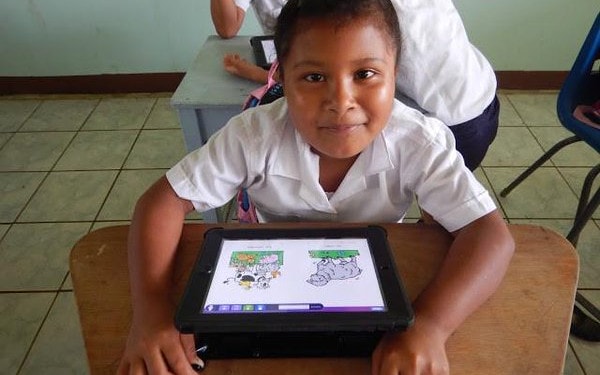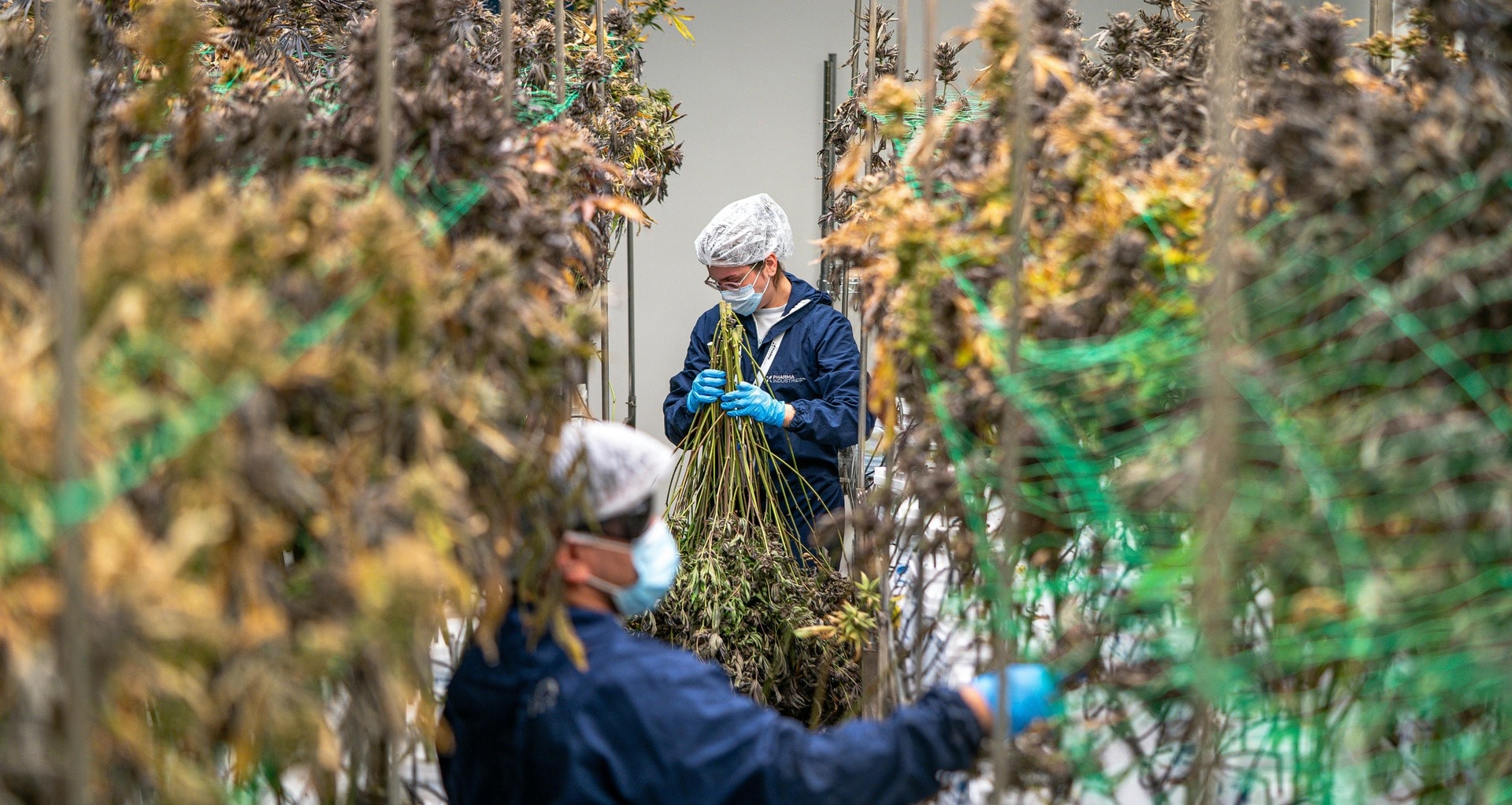This article was a collaboration between Impakter writers Deanna Shen and Nisreen Al-Basha.
The topic of education tends to evoke strong emotions, strong opinions, and strong questions. Whose responsibility is it to teach? Who decides what students learn? When does learning begin and when does it end? What should students learn, and when should they learn it? How? Why?
Most of the schools in the world are stuck in the industrial model of education, one in which there is typically a transactional delivery of information from the source (teachers) to the receiver (students). The methods of learning are primarily rote memorization, packaged into exams and quizzes, and information regurgitation, via essays. That’s not to say that understanding the skills of memorization and written communication don’t have a place, but what is it exactly? What are the educational results of these methods? What do they prepare students for, and how do they train their minds? How do we justify their complete infestation of our schools? Can we?
As we have increasingly questioned the content and methods of the predominant global educational model, solutions have sprung up, and drastic changes have been proposed.
The very structure of the Orestad Gynasium of Denmark encourages collaboration. In Rhode Island, USA, Big Picture Learning integrates education with skills learned in the workplace. The Swedish Egalia school system is socially innovative, rejecting gender-based pronouns in order to promote equality. And the Silicon Valley’s AltSchool harnesses technology to create personalized learning programs for each student. These are all incredibly exciting, and we think it’s truly thrilling to see so much educational innovation. Hopefully this new generation of schools will be able to learn from each other and integrate newfounded best practices.
But there’s someone we’re missing. There’s someone you’re missing. Who is being left out here?
There are millions of kids who don’t live in affluent areas where new, progressive schools are being built. These kids might not live in forward-thinking communities. They might not have any lobbying power, or any ability to inspire the delivery of the copious amounts of resources it would take to build a computer lab. They might not even live in an area that has the infrastructure to support an electrical grid.
These millions of children live in rural areas all over the world (the Western world too), and they need their own unique educational strategies.
Luckily there is an organization, called TabLab, that didn’t miss them. We were fortunate to have the chance to speak with TabLab Founder, Ross Wehner, to discuss education, innovation, and how he came to be involved in the creation of this innovative company. This interview has been edited and condensed for clarity.
Education is the most powerful weapon which you can use to change the world – Nelson Mandela
In Wehner’s own words, here is a summary of Tablab’s mission:
At TabLab we identify “teacher-trainers” with high potential and leadership, who makes a two-year commitment to the school, and we give them extra training in project-based learning, and blended learning, and we take them from being a great teacher to becoming an effective school-change agent.
It’s [normally] incredibly expensive to bring teacher training and technology to these schools. We think that TabLab, at a cost of about $15,000 per school for the entire two year program, is a very affordable option. Each school that’s in TabLab gets a mobile tablet lab, which is a box full of 20-50 iPads or Android tablets. These tablets connect to a server, a little microserver, that has 3 terabytes of information, often times tailored to the country where the TabLab is.
We have Wikipedia offline. We have all kinds of textbooks and ebooks. It is a miniature version of the internet. And this entire system does not need either internet or electricity to operate. That is a really important thing for schools where there is no Internet or there is no electricity, or maybe it’s marginal or maybe it’s intermittent. So we can reliably have a curated version [of the internet] with technology with a lot of great research materials every day in our schools, no matter what’s going on with the electrical grid or with the internet. And that has been a really huge advantage of TabLab.
We look at, of course, core learning skills like reading and writing. We also look at some 21st century skills like collaboration and problem solving. We look at data on behavioral incidents, on attendance, on graduation rates.
Our goal with TabLab is to prove that we can not only change a school, not only transform a school, but that we can transform an entire school district.

Photo Credit: TabLab
What is one thing that you believe very strongly that the world would disagree with? What is something that you disagree about that is a very common belief in the world?
R.W: I completely disagree that innovative teaching is not scalable. I completely disagree that rote learning is the system that will be with us for the foreseeable future. The days of rote learning are very numbered, and we are going to find ways to replace it with much more interesting place-based, student-driven forms of learning that will truly revolutionize schools and bring back local knowledge again.
…the challenge now is not to build more schools. The challenge is to transform the ones we already have, and to do it at a very low cost scalable way, and that is the holy grail for TabLab.
In addition to being the Founder and Executive Director of TabLab, you are also the Founder and Executive Director of World Leadership School, an organization that works to empower young leaders to find innovative solutions to critical world problems. What compelled you to found these organizations?
R.W: When I graduated college in the late 80’s, I was a journalist. I had a job in Washington, D.C., but came to a point in my life where I realized I needed to be elsewhere, so I raised some money and journeyed out to South America. I covered stories about the government in Chile, health and sanitation issues in Peru, and so on, for over 6 years. But I got tired of writing coverage about problems, and wanted to find solutions. So I went back to the states to become a teacher where I was inspired to empower young leaders to create solutions for these great problems. That became the mission of World Leadership School. We focus on systems change, believing that the greatest impact is with training teachers to lead project-based learning. World Leadership School has grown into a healthy business that now works with about 50 independent schools, namely private schools, each year, and we send about 600 students abroad each year. We have built over the last 10 years dining halls for schools, girls’ dormitories, sewage systems, fresh water systems, lots of classrooms.
When we looked at it, we were building a lot of great stuff but we weren’t transforming learning for these schools in the same way we were transforming learning for our private schools back in the US and Canada.
How might we partner with rural schools to transform learning?
R.W: Together with these school leaders in different parts of Africa and South America we came up with this concept that came to be known as TabLab.
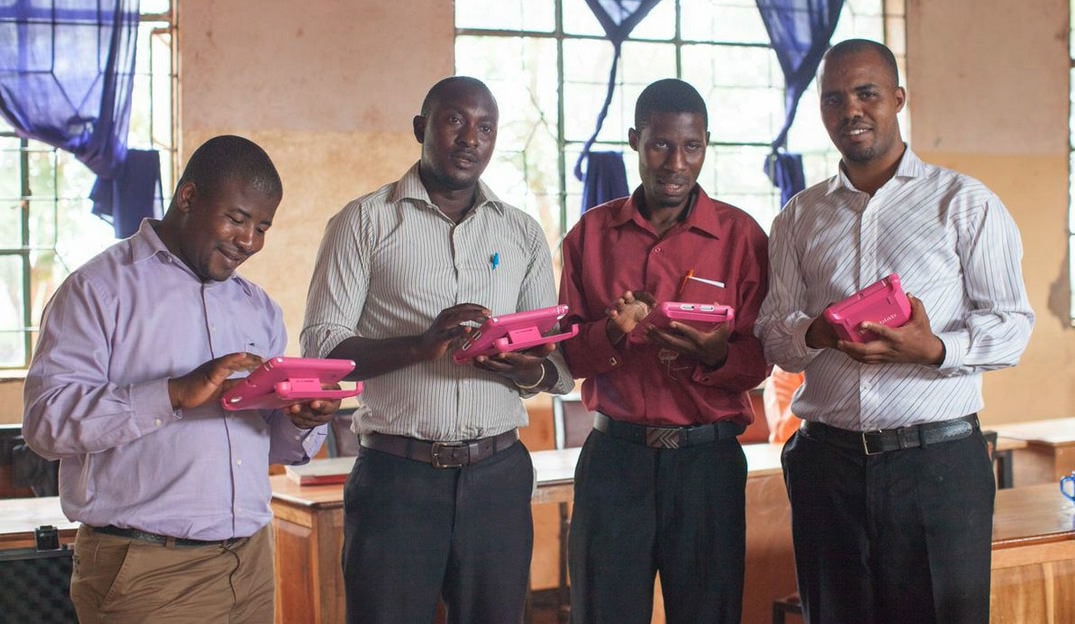
Photo Credit: TabLab
How do you find that cultural content, what a child in Tanzania might need to know? Do you contact local experts or local experts in Tanzania? How do you find that expertise?
R.W: We rely on partnerships with a variety of organizations. We have partnerships with different organizations that supply apps for our tablets, and these apps work offline. So an example would be Geogebra, which is a UK-based organization. We have a free licensing arrangement with them. Another one is myBlee Math, which is a French organization, and then of course the iPads especially have a range of wonderful creativity apps that work offline, like Book Creator, iMovie, etc. The actual iPads or Androids have apps that work on them offline, and then they could also use a local network to research content that’s on the server. So for the server we use an organization called World Possible, which is worldpossible.org. World Possible does a number of incredible things. They build these servers, called Raspberry Pi servers, but they also build a content system called Rachel, which includes a huge amount of information that is available online.
So we are not a technology-focused organization—we are a teacher-focused organization. We are a human-centric organization. We are not interested in pushing the envelope with technology, we want to use simple, off-the-shelf technology. We want to leverage partnerships. We want all of our energy and innovation to go into this process for training our future trainers, because we think that that’s the piece that’s really difficult, and that’s not been done before.
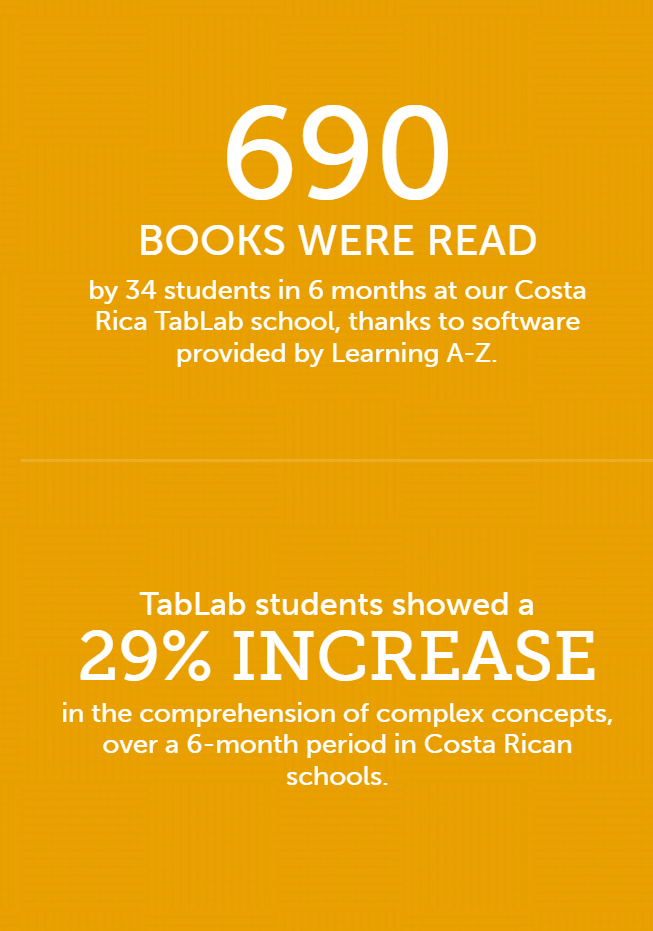
Photo Credit: TabLab
How do you go about figuring out what are the best teaching strategies? How do you find that best innovative method that’s the opposite of rote learning?
R.W: We start with the base, which is project-based learning. Project-based learning is a well-known pedagogy that has decades of implementation in North America. It has great systems and frameworks that are recognizable for a traditional teacher. We start with project-based learning, and then we see what our local teachers do with it in their own cultures. The great thing about project-based learning is that it has students develop what we call an essential question, which is a question that drives the learning, and then students work in teams, and they go through a process of investigation and researching and gathering feedback, to basically answer this question. At the end of project-based learning they demonstrate their learning in front of an authentic body of students.
We’re not suggesting by the way that our schools do project-based learning all year long, but we think that if teachers can engage in project-based learning a few times a year, their teaching style will begin to change. They will realize that students learn more effectively when they’re working in teams, that students using the iPads can quickly master content, and they can begin developing other skills like problem-solving, communication, creativity, etc. And that the teacher’s role shifts from being in front of the chalkboard to being more of a facilitator of a learning process.
That’s a really exciting realization for our teachers. When the teachers see the students engage deeper when their learning, it’s also when they engage deeper with their craft.
At World Leadership School we have this learning paradigm, which I actually think is quite universal, we call it disconnect, de-center, and re-envision. If you can do that in your life when you’re young, I think that’s a tremendous gift to give yourself I think it’s the most important type of learning that we can give ourselves.
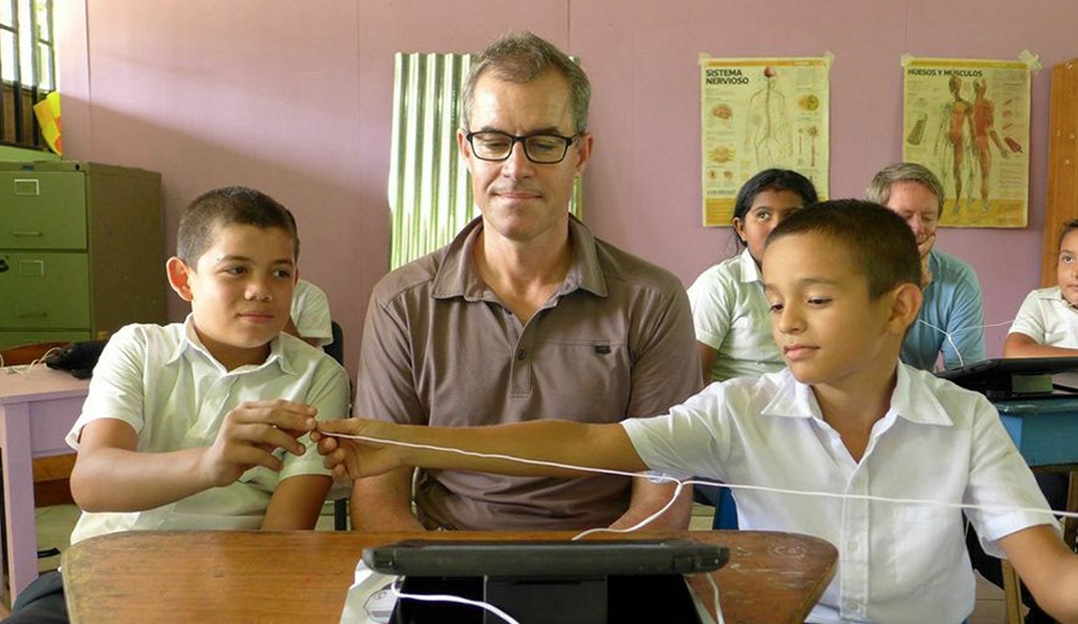
Photo Credit: TabLab
One of the arguments for rote learning or the industrial model of education is that it’s scalable. It’s not necessarily effective, but scalable. Do you think that project-based learning is scalable?
R.W: That’s exactly what we’re trying to prove. It is true that rote learning is scalable and standardizable if that’s a word, but it’s also true that rote learning is hitting the wall of reality, given the complexity and volatility and the uncertainty of our world. It just no longer works. It’s that failure of rote learning that’s really apparent now, and rote learning is vulnerable in a way that it hasn’t been before. And so the gap will be filled by new pedagogies, and we think that project-based learning is a very easy to understand.
What we love about project-based learning is that a traditional teacher looks at it and says “Got it. It’s got everything that I’m used to. It’s got my lesson plans, it’s got an assessment framework, it’s got my rubrics. I can do this.” And they’re off and running.
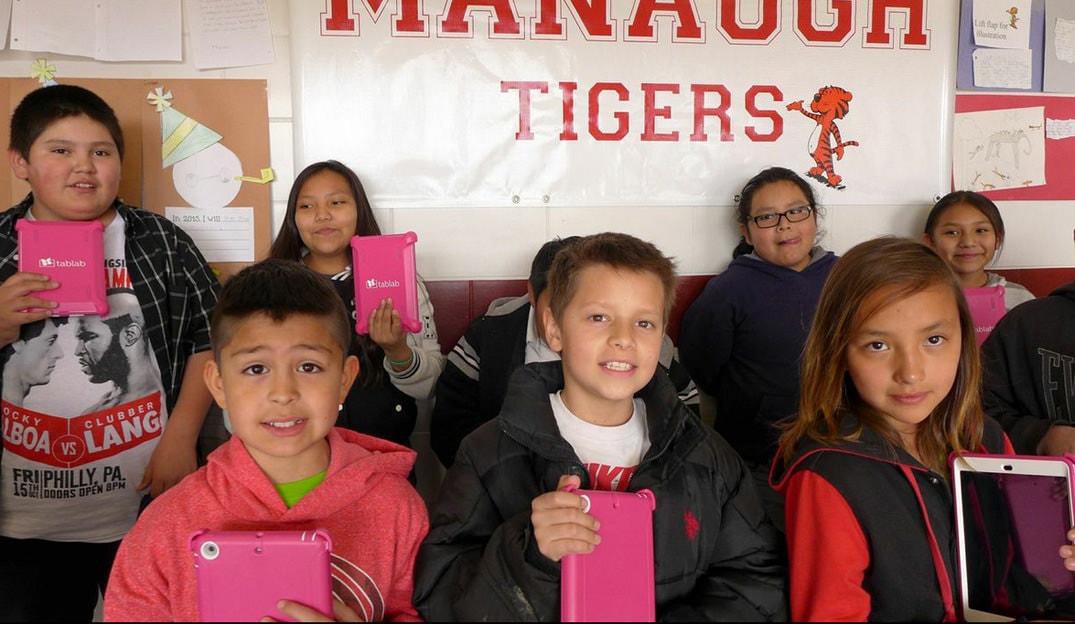
Photo Credit: TabLab
Related articles: “WHEN INNOVATION AND EDUCATION INTERSECT: THE STORY OF EDMODO“
“MEETING EDUCATION FOR ALL (EFA): AN INSIGHT INTO THE CASE OF TANZANIA“
What do you think are the biggest obstacles to the widespread adoption of project-based learning? Is it the institution of rote-based learning that you have to convince people to change? Is it you convincing teachers to change first, or do you convince students? How do you go about changing traditional education?
R.W: The obstacle is teachers, and teachers for school, those of us who work in school change understand that for a school to transform, teachers have to own and drive the change. School leaders can create a vision, can provide resources, but ultimately if a school is going to change, if a cultural system is going to change, it’s the teachers that are going to drive that change. And to a lesser extent, the parents.
So we have to find a way to train our teachers at scale. That is what we’re trying to do with TabLab, by taking local teachers, helping them to become school change agents, and adding more movement and energy to these school systems until their classrooms transform.
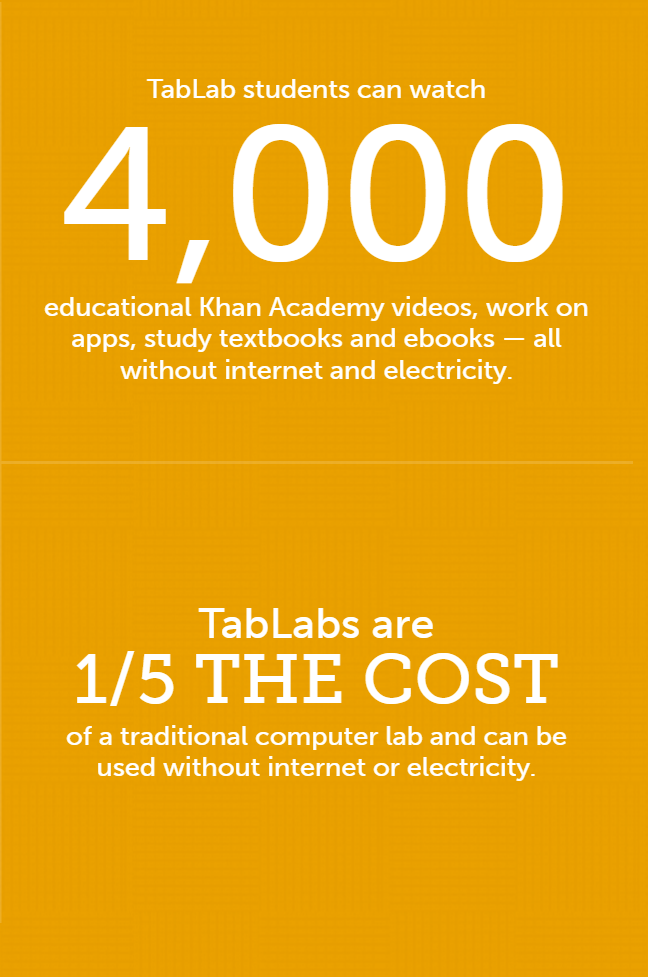
Photo Credit: TabLab
One strategy might be to go school by school, maybe eventually being able to get through to national teaching organizations. Maybe getting information out there more quickly through those kind of associations.
R.W: Absolutely. That’s what we call systems change. It’s fun to change a school, but we’re trying to change districts. A district is usually 35 schools, and we think that once we change a district, ministries of education will take notice. Because like I said before, they’re all dealing with this problem of rural schools. They all want to solve it.
Once we start working with the ministry of education, we can work with hundreds of schools, we can work with national curriculum, we can work with national standards, we can work with teacher colleges, we can work with all kinds of systems that are already in place to drive change.
But we have to prove that we can do it at a systems level first.
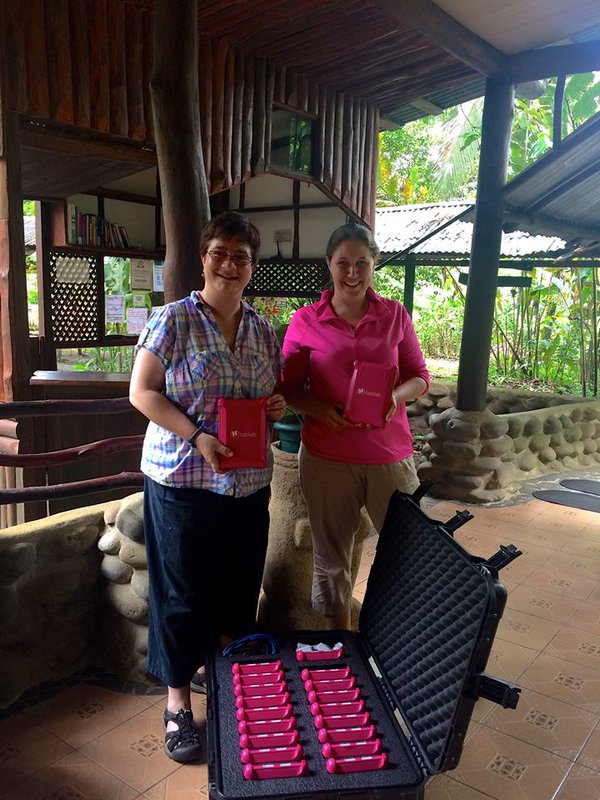
Photo Credit: TabLab
Do you envision the content of TabLab providing all the content for the entire curriculum for all the students, everything from history to math, from everything that a student normally learns plus some things that they’re not? Is that where you envision it going?
R.W.: Again, I think that TabLab, the one thing that makes us truly different from other organizations is that we are a teacher focused organization. So we are about transforming the way that teachers teach, and the technology is just a tool to support teachers in that transformation. So transformed teachers do not even need tablets in their classroom to do their work.
There’s a TabLab for every school. There might be 10 classrooms in this school, and there’s one TabLab that rotates between these classes. And so the goal is to get the teachers doing things in new ways using the tablets when appropriate.
So I don’t think it’ll ever be a one-on-one program where every single child in the school has a tablet, but every single child in this school will benefit every day from a new and reinvigorated teaching that is connected to place and that is informed by the students themselves.
I would say the other thing that makes TabLab different is that we do not believe that transforming all of the education in rural schools needs a gigantic capital expenditure.
We do not need to build more schools.
In the last 15 years, according to UNESCO data, we have built a huge number of schools. And truly we have fulfilled the original millennium development goal, launched in 2000, to provide universal primary education. We have come very close to doing that.
Of the total 16 hundred 50 million children in the world, less than 8% do not have a school to go to. Most of these kids are in war zones like Afghanistan and Syria where it’s very difficult to run schools.
And so the challenge now is not to build more schools. The challenge is to transform the ones we already have, and to do it at a very low cost scalable way, and that is the holy grail for TabLab. How can we take existing schools, add just a little bit of technology, pluck out a really talented teacher, help them become a school change agent. How can we work with these ingredients and really do something remarkable that is scalable.
At $15,000, which is our cost for the 2-year program per school, that is a very affordable solution, compared to what’s out there now.
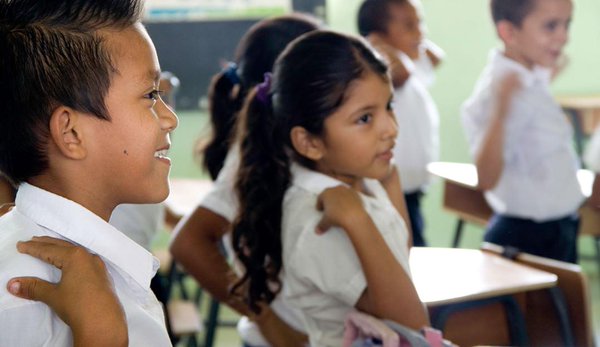
Photo Credit: TabLab
For a full mindmap behind this article with articles, videos, and documents see #TabLab
There are significant disparities in performance based on gender, depending on which country, and which subject you’re looking at. So with all of the data you gathered or any of the feedback you gathered, do you see gender discrepancies in performance closing, or do you have any insight about how it might be changing gender dynamics?
R.W.: Sure. Well there’s no question that there’s a huge gender gap, and in countries like Tanzania, you see that. In countries like Tanzania, you have up to 75% of students under the age of 10 not reading, writing, or doing math, you have a huge disparity between boys and girls. Culturally, many parents do not believe that girls need education. So it’s a big challenge.
It’s a huge challenge.
These are societies in which girls get married off very young, like at the age of 12, and once they get married off they become pregnant and that’s it. Then they’re at the farm for the rest of their lives, tending goats and cattle. And so it is a very difficult system to break.
But I think that what TabLab is doing is that it is providing something that all students, irrespective of gender, can latch onto. For the students who want to go further, we have been setting a path to school clubs. What’s been interesting about these after school clubs, is that it gives students more time to spend with the tablets and more time with the teacher trainers, and for some reason these clubs are predominantly girls.
It is the girls who want to stay after school and give the extra learning and the extra time with the tablets. It’s remarkable to see. Our after school clubs in Tanzania are almost exclusively women. I think it’s just that there’s a huge pent-up hunger for education among females, and these are first generation females ever to go to this level of high school. Most females before had gone through primary school. But to go through what in Tanzania is middle and high school is very unusual for a girl.
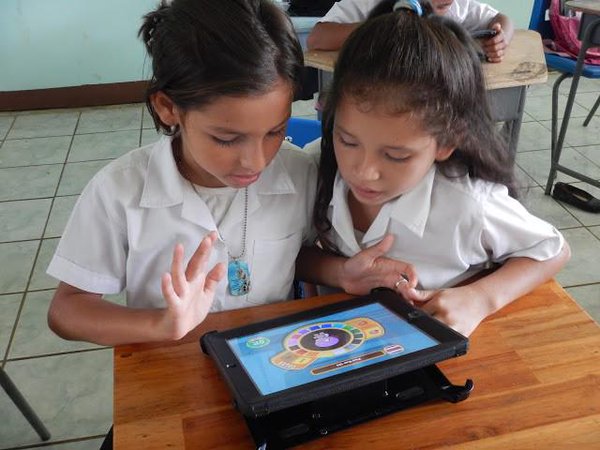
Photo Credit: TabLab
The days of rote learning are very numbered, and we are going to find ways to replace it with much more interesting place-based, student-driven forms of learning that will truly revolutionize schools and bring back local knowledge again.
I know that you’ve been picking teachers that are local, and that you identify as change agents, but what are some of the qualities that you look for? How are you finding these teachers?
R.W.: Right. So one of the great advantages that TabLab has versus other solutions is that tablet rides on top of World Leadership School. In other words TabLab is funded in part by World Leadership School, which is a for-profit company. But it also uses World Leadership School coordinators in each country to vet its schools. We have World Leadership School with its traveling students passing out networks with rural schools all around the world. So we have these long term relationships, and those are very expensive and time-consuming to build.
TabLab sort of leverages the human and financial capital of World Leadership School to find the best schools, the best teacher trainers, and to have really incredible coordinators who are working. All of our coordinators at TabLab are purely volunteers. The only people who get paid at TabLab right now are our teacher trainers. Starting July 1st, I will be turning over Executive Director to our first ever paid Executive Director. I’ve been doing this as well on a volunteer basis these last several years.
We are getting an Executive Director who is going to really take our organization forward. She is founding principal of the largest online High School in Colorado, and has extensive experience internationally. And really understands the rigors of a startup environment and building educational organizations.
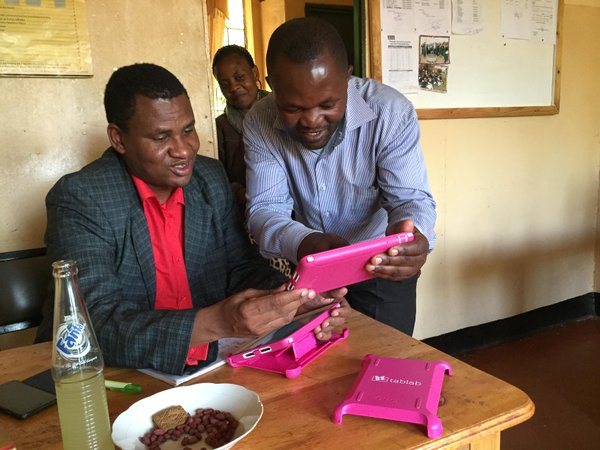
Photo Credit: TabLab
That’s definitely something that we think about, especially in the bay area. There’s a lot of startups trying to enter the education space. Where do you think the greatest opportunities are, where are the greatest hurdles? As someone immersed within it, what would you love for the space to evolve in?
R.W.: Well there’s a tremendous amount of investment and innovation, entrepreneurship and I think it’s wonderful that entrepreneurs and investors are finally seeing ways to make real money in educational technology. Most of it is courses focused on the first world.
I’d like to think of us as pioneering innovation in rural schools. Rural schools are a massive, massive and very profitable market of the future. My hope is that TabLab can become a for-profit entity within 4 years. I think that if we can prove systems change within a district, and if we start getting contracts with ministries of education, I think that we can fairly quickly convert to non-profit entities in different countries that license technology and intellectual property from the original non-profit. I think it’s a very very sustainable path for us. I’m a businessperson, an entrepreneur. I recognize the limitations of a non-profit structure. It’s incredibly hard to raise money. It’s incredibly slow, etc. We would like to get to for-profit status as soon as possible. And that indeed is our intention.
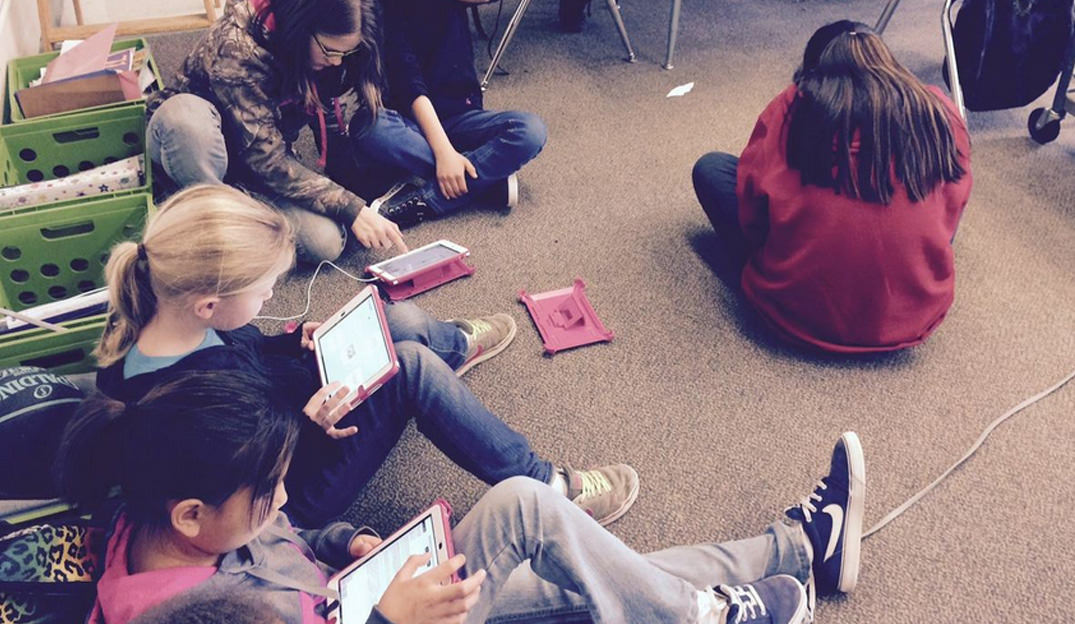
Photo Credit: TabLab
So is it that you hope to start getting public funding for TabLab, for example Ministries of Education who will recognize the value and will start paying for the technology?
R.W.: Absolutely. There’s lots of money out there for rural schools, and much of it is being spent very poorly right now. And if we can come up with a very smart, efficient, low-cost scalable solution, we’ll start getting those contracts. We’ll get contracts from national governments, and they will co-mingle those funds with international funds, from USAID and other organizations. There’s a lot of money put towards education, it’s just being first to market with a solution that works. As with any business, right?
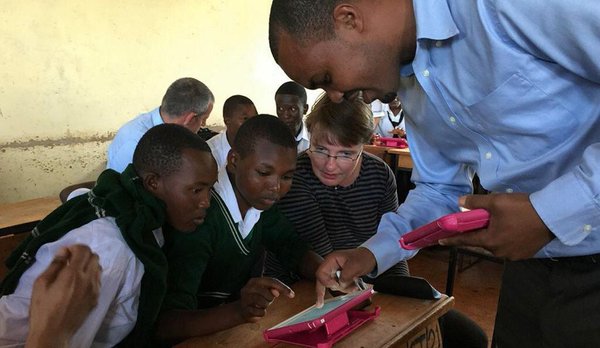
Photo Credit: TabLab
We asked this question: how might we partner with rural schools to transform learning?
You explained that it’s more possible for edutech entrepreneurs in the first world to make a profit – is that because of public or private funding?
R.W.: Pearson is the world’s largest education company, and they’re a Fortune 500 company I think. So yeah it’s a huge market. Imagine what a country like the United States spends a year on education, through all of the districts and every state, I mean it’s a huge, huge number. Huge amounts of money.
Fifteen years ago, most Fortune 500 companies would not touch Africa as a company. They just thought there was absolutely no money there. And look at what’s happened now. Now most Fortune 500 companies are taking a really close look at Africa and the incredible growth there in consumer products, in construction, in retail, in service, consulting, telecommunications, you name it.
Africa has become a hugely attractive market. And companies that are getting in now are frankly too late. I think the same thing will happen with rural schools. That there will be edutech companies pointed at rural schools, developing versions of technology that has been developed for first world countries and developing it for developing countries.
I actually think that another thing that can happen is a phenomenon that we call reverse innovation, which is where technologies for developing markets end up. You know Proctor and Gamble has done this over and over again with their corporate structure – technology that’s developed for developing countries like TabLab, could actually end up having a huge impact on first world countries.
One of the great examples is when GE developed a very low cost ultra sound machine for India. And you know most ultrasound machines in the U.S. cost several hundred thousand dollars. This one cost $10,000, and could be carried around. It allowed people to look for all kinds of things going on in your body. They developed this in India 15 years ago and now it’s spread throughout paramedics and small country hospitals throughout the United States. It’s been a major revenue source for this company.
The same thing could very well happen with TabLab. The U.S. isn’t one of our focal locations right now but we have tested TabLab in a rural school in the U.S., and seen some really incredible results. In terms of results on at-risk schools in the U.S.
We have also seen that using offline systems, offline networks, produces some really interesting results as well, like we’re beginning to see perhaps that having kids connected to the infinite world of the internet may not always be the best idea. Giving them a more curated, controlled version of the internet may be a very compelling thing for school districts in the future. The prospect of reverse innovation is certainly possible down the road.
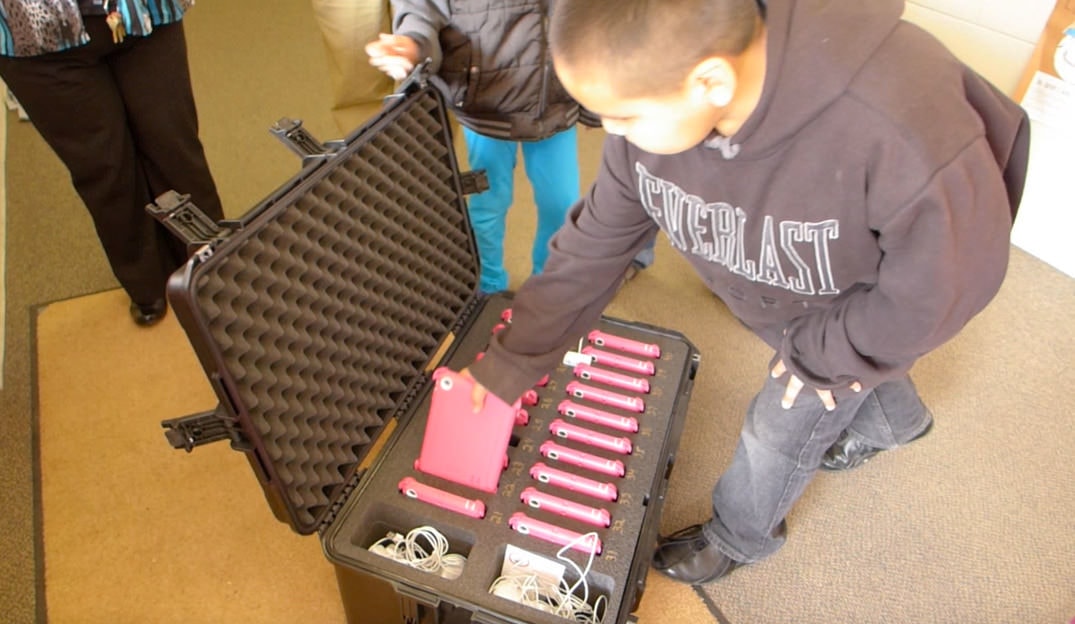
Photo Credit: TabLab
As you’re thinking about expanding and scaling, I know that you’re largely targeting specific schools and growing out the districts in each region, are you considering or concerned at all about the political background, or anything in terms of bureaucracy involved that might come into terms with the company, disrupting education at the local level. Have you come up with any barriers in that sense so far?
R.W.: TabLab only aims to disrupt the classroom, we do not aim to disrupt these huge network of systems around the schools. And so is there a lot of bureaucracy in Tanzania? Absolutely. Can we make it work within the system? Yes we can.
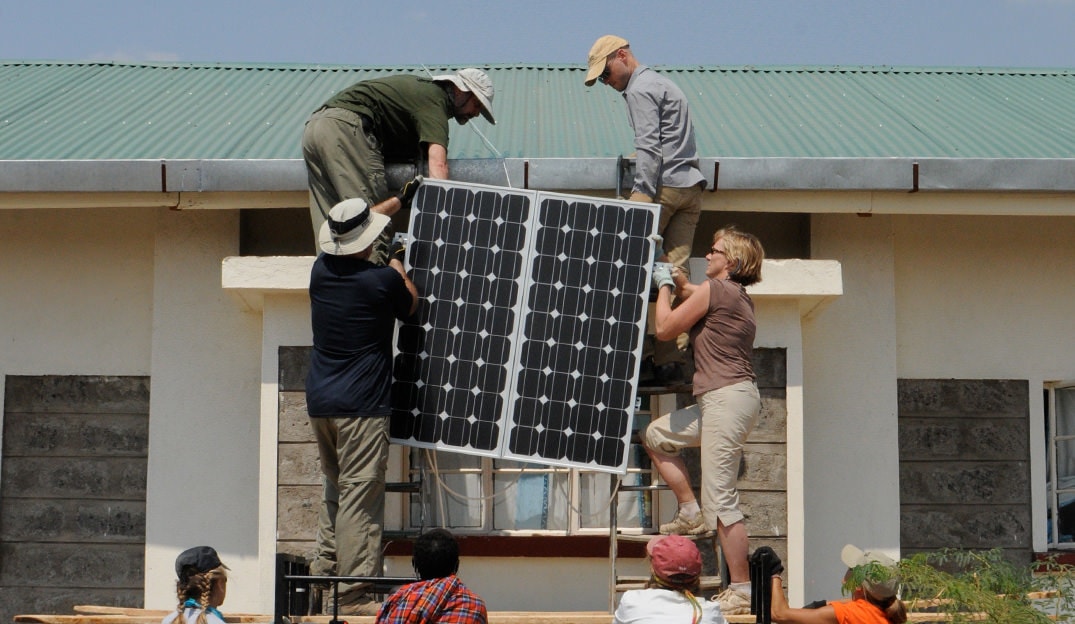
Photo Credit: TabLab
What advice do you have for people who want to start edutech companies or who want to be entrepreneurs? What should they know or be aware of?
R.W: I do think that much of the growth in the future will be outside of the United States, in developing markets. I spent 6 years as a journalist living in Latin America, and that was a critical time in my life. I was recently reminiscing with friends, we were sort of remembering what they were doing in their early 20s and they compared it to what I was doing in my early 20s; mentally, and I have to say that it is great to put yourself in situations that force you to see things from new perspectives.
And so I think as a young person, challenging yourself with new perspectives is really, really critical. At World Leadership School we have this learning paradigm, which I actually think is quite universal, we call it disconnect, de-center, and re-envision. This works with students, I’ve also used it with executives in leadership development programs.
It’s the idea that you put yourself in an experience where you’re forced to disconnect. Often times I think that it’s disconnecting from technology, to be honest, because we’re so tethered to out phones all the time it’s very difficult to have big, organic thought sometimes with all the fragmentation going on. Disconnecting from family, from our ways of doing things, and then putting ourselves in situations where we become de-centered, where we’re actually pushed off balance. Where the ways in which we believe the world works is challenged, and we’re stripped of those beliefs.
And then the re-envisioning, the final part is about really walking alongside local people, local leaders, local students, and really seeing things from their perspectives. If you can do that in your life when you’re young, I think that’s a tremendous gift to give yourself I think it’s the most important type of learning that we can give ourselves.
Recommended reading: “BAHRAIN’S FIRST TAB LAB OPEN”


